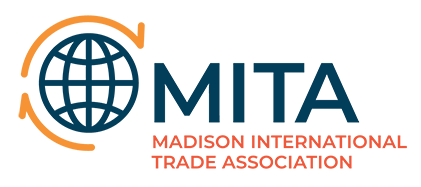An international trade expert says company leaders need to build a “culture of trade compliance” to avoid the pitfalls associated with importing and exporting overseas.
Margaret Lange, compliance director for Milwaukee logistics firm M.E. Dey & Co., discussed this topic yesterday during a webinar hosted by the Madison International Trade Association. She warned participants that failing to adhere to trade regulations can result in significant fines and penalties, goods being detained at ports, the loss of importing and exporting rights and other consequences.
On the export side, she said certain administrative violations alone can result in fines of up to $300,000 each.
“So if you have many shipments leaving the country … that can really add up quickly and be quite devastating to your company,” she said.
To avoid these unwanted outcomes, she urged participants to include trade compliance elements in all business plans and goals, and communicate the importance of compliance policy to all business divisions.
“It’s going to provide direction and expectations to the staff so that they understand why it’s important to them and what they need to do to be part of this initiative,” she said. “That policy should also be communicated regularly — this is not a one-and-done thing.”
Lange emphasized the importance of continued education and training to keep staff updated on trade compliance regulations, as the global landscape shifts due to changing U.S. relationships with other countries such as China and Russia. That can come through adding new software, or bringing trade consultants on board to assist with these efforts, she said.
“All of this needs to be really coming from the top-down; the culture needs to be built,” she said.
She also referenced the Uyghur Forced Labor Prevention Act, which went into effect in June after being put in place by U.S. lawmakers. This law aims to prevent U.S. entities from funding forced labor by minority groups in the country’s Xinjiang Uyghur Autonomous Region.
According to Lange, more than 1,300 shipments have been stopped since the law took effect due to potential ties with forced labor in the region.
“There has been no importer who’s been able to prove their products weren’t made with forced labor,” she said. “So that product has been sitting at the port of entry and they haven’t been able to get their product. So you really want to make sure you’re thinking about that as well, and having processes in place.”
Watch a recent episode of “Talking Trade” focused on the new law: https://www.wisbusiness.com/2022/talking-trade-with-damian-felton-of-the-cohen-group/
See more trade-related news at the WisBusiness.com Trade Policy page: https://www.wisbusiness.com/trade-policy/
–By Alex Moe

